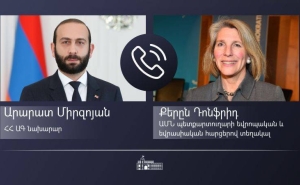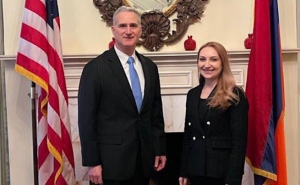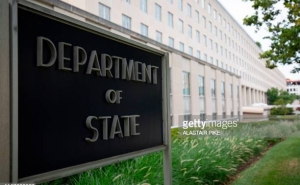 Trump Changes the Logic of His Policy Towards Its European Allies
Trump Changes the Logic of His Policy Towards Its European Allies

After the election of the US 45th president, the relations between the US and its European allies are not that smooth. The expectations of the European allies were great from the first foreign trip of the US current president, during which he participated at the NATO summit in Brussels and G7 summit. As it was noted in various European analytical articles, it was expected that the US president would use these opportunities to reaffirm the US support to its European allies. To what extent were the expectations of the European allies met and what conclusions can we draw about the future relations between the US and its European allies?
NATO Summit
It was expected that during the NATO summit in Brussels, the US president would express his clear stance on the alliance and like the US previous presidents would express his commitment to the Article 5 of NATO, according to which an attack against a NATO member state is considered an attack against other member states. However, during his speech at the NATO summit, Trump emphasized the need of NATO members to fulfill their financial obligations, underlining the fact that 23 of 28 NATO members do not pay their financial obligations to the alliance. Trump also noted that during the recent 8 years, the USA has spent more on defense than all other NATO states taken together. What refers to the Article 5, although in his speech Trump referred to it, noting that it was first used after September 11, 2001 terrorist attacks against the US, Trump refrained from directly confirming the Article 5 of NATO. To compare we can state that the US former president Barack Obama during his first NATO summit clearly underlined: "The NATO was founded on the basis of a simple but solemn commitment: an attack on one is an attack on all.” (Strasbourg, France, 2009)
G7 Summit
During G7 summit the main problematic issue discussed between the USA and its European allies was the disagreement on Paris climate agreement. After the summit German Chancellor Angela Merkel declared that the negotiations on climate were not "satisfactory," while the US president Donald Trump on his Twitter page noted that he would make a decision on the Paris agreement next week.
Already on June 1, the White House issued a statement, where the US president declared that the US withdrew from the Paris agreement. Still he noted that they would start negotiations on returning to the same or to a new agreement with the conditions that would be "just for the United States, American companies, employees, people and tax payers." In his speech Trump explained their decision in a detailed way in terms of numbers. He particularly noted that the limitations defined in the agreement will cost the US 2.7 lost jobs by 2025.
To compare we should note that such a policy of the current US president drastically differs from the policy employed by Barack Obama, who considered the international agreement on climate "tribute to American leadership".
Commenting on such a change in the US policy on the issue, we should note that in this case also Trump put the interest of his country on the first place in contrast to the common interest on the climate and the leadership role of the US on the issue.
In this context we should also refer to the last formal note by the US administration to review its participation in the UN Human Rights Council. On June 6, the US Ambassador to the UN, Nikki Haley, explaining the US such a stance, spoke about the negative stance of the Council against Israel. To note, since Trump’s election, he and his administration has posited against the UN and not once. In one of his Twitter posts, Trump called the UN "a club for people to get together, talk and have a good time." Trump suggested to cut the US financial contribution by nearly a half (to note, the annual contribution of the US to the UN is 10 billion dollar, which is 22 percent of the UN budget).
Thus commenting on Trump’s policy towards his European partners, we should note, that there is a clear change in it. If the previous US administration considers it its mission to protect and patronize his European counterparts gratuitously, the current US administration wanted to give up the US such a role, instead demanding from its European allies to have their own contribution in different issues. This is a change, which will be hard for the European allies to accept and which will be a point of disagreement between them for a long time.
Other materials on this subject
- Turkey is sending Cold War-era cluster bombs to Ukraine – FP The weapons are designed to destroy tanks by bursting into smaller submunitions, which can linger on the battlefield for years if they do not immediately explode. Each round scatters about 88 bomblets.
- Los Angeles mayor and city council president address US president on Lachin corridor issue Thank you, Mayor Bass, for joining me in communicating to President Biden the urgent need for U.S. leadership to lift the blockade and bring humanitarian relief to the people of Artsakh.
- US Committed to Helping Armenia and Azerbaijan Resolve Issues Peacefully: Blinken Spoke With Pashinyan The Secretary reiterated our commitment to helping Armenia and Azerbaijan resolve issues peacefully.
- Iran to Submit Final Conclusion Over Nuclear Deal Revival by Midnight In comments on Monday, Amirabdollahian said Iran is going to send its final conclusion about the JCPOA talks to the European coordinator in written form at midnight.
- Erdogan, Biden Might Meet in September- Media Turkey plans to buy 40 F-16 fighter jets from the US and upgrade another eighty. US President Joe Biden stated that he expects to receive the approval of the [US] Congress to sell F-16 fighter jets to...
Other materials on this subject
- The European Union Has Decided to Abandon Russian Coal In the Summer Many countries have joined these sanctions, even if this necessarily implies economic costs for ourselves," he noted.
- Germany Faces Steep Recession if Russian Oil and Gas Halted, Bank Lobby Says "The situation would be even worse if imports or supplies of Russian oil and natural gas were to be halted. A significant recession in Germany would then be virtually unavoidable," Sewing told journalists.
- EU Leaders Agree on Joint Gas Purchases Last year, the European Commission proposed to the EU countries a system of joint purchases of strategic gas reserves as a way to provide a buffer against possible supply disruptions. Fears of supply disruptions...
- European Union Launches “Team Europe” Package to Support Partner Countries with More than €20 Billion: Reuters Most of the money is being reallocated from other, less urgent EU foreign aid schemes in the EU’s common budget, but Borrell said the European Investment Bank, the European Bank for Reconstruction and...
- The Guardian: EU Leaders Clash Over Economic Response to Coronavirus Crisis Meeting via a video link, the EU’s 27 leaders papered over deep divisions by agreeing that another fortnight was needed to discuss ambitious economic recovery plans. After a testy debate over "coronabonds",...
-
 17:08
17:08The regular session of the Anti-corruption Policy Council takes place in Jermuk
-
 15:05
15:05The Prime Minister sends congratulatory messages to the supreme leader of Iran and the President of Iran
-
 11:11
11:11Armenia sends earthquake aid to Turkey
-
 10:43
10:43Commemoration of the Pontiff St. Sahak Partev
-
 09:16
09:16Some roads are closed and difficult to pass in Armenia
-
 19:55
19:55Phone conversation of the Foreign Minister of Armenia with the U.S. Assistant Secretary of State for European and Eurasian Affairs
-
 18:30
18:30Prime Minister Pashinyan and President Khachaturyan meet
-
 18:20
18:20Ararat Mirzoyan with Co-Chairman of the OSCE Minsk Group of France Brice Roquefeuil
-
 17:01
17:01Humans could land on Mars within 10 years, Musk predicts
-
 16:45
16:45France, US urge 'immediate' end to Nagorno Karabakh blockade
-
 16:01
16:01Blockaded Nagorno Karabakh launches fundraiser to support quake-hit Syria
-
 15:59
15:59Earthquake death toll in Turkey rises to 18,342
-
 15:43
15:43Ararat Mirzoyan Held a Telephone Conversation with Sergey Lavrov
-
 15:06
15:06French president rules out fighter jet supplies to Ukraine in near future
-
 14:47
14:475 Day Weather Forecast in Armenia
-
 14:44
14:44President Vahagn Khachaturyan wrote a note in the book of condolences opened in the Embassy of Syria in Armenia
-
 14:20
14:20Azerbaijan’s provocations impede establishment of peace and stability – Armenian FM tells Russian Co-Chair of OSCE MG
-
 12:57
12:57France representation to OSCE: Paris calls on Azerbaijan to restore freedom of movement through Lachin corridor
-
 11:40
11:40Command of Kosovo forces highly appreciated preparation of Armenian peacekeepers
-
 10:16
10:16The United States withdrew from sanctions against Syria for six months the provision of assistance after the earthquake
day
week
month
Humidity: %
Wind: km/h









